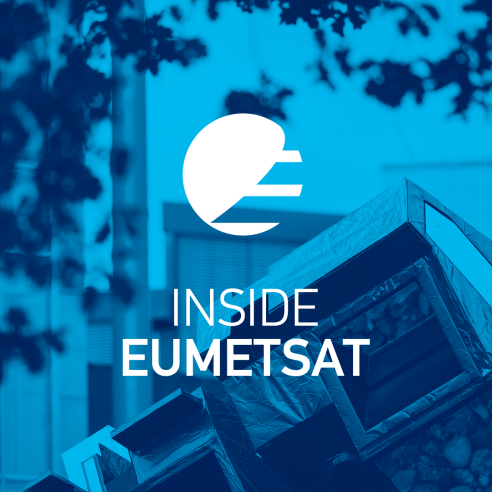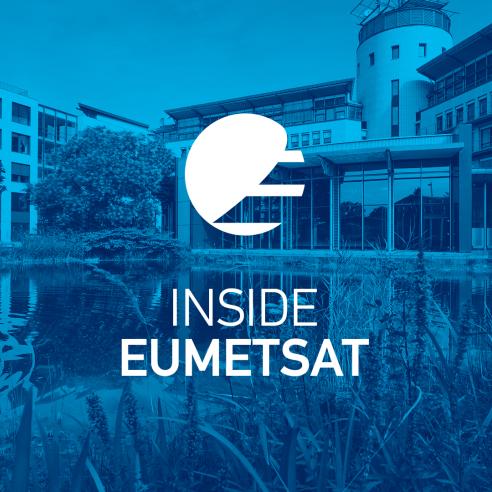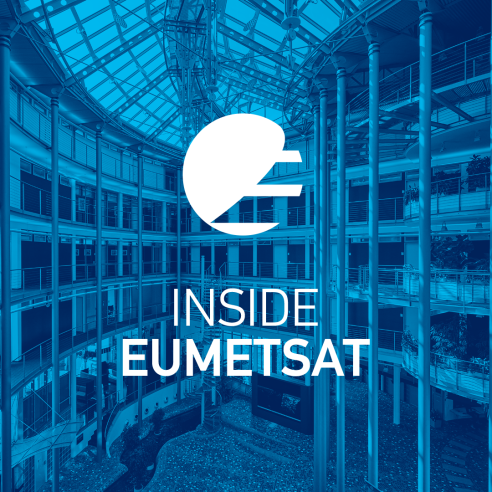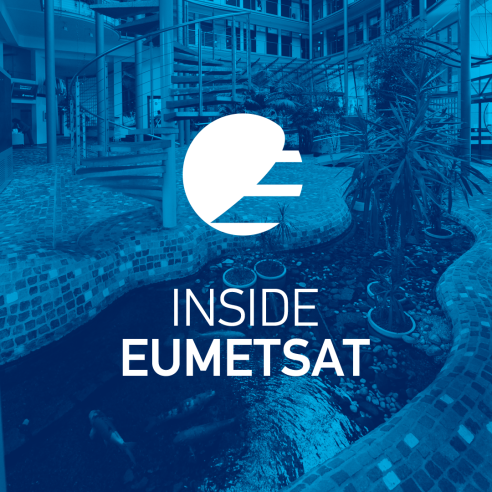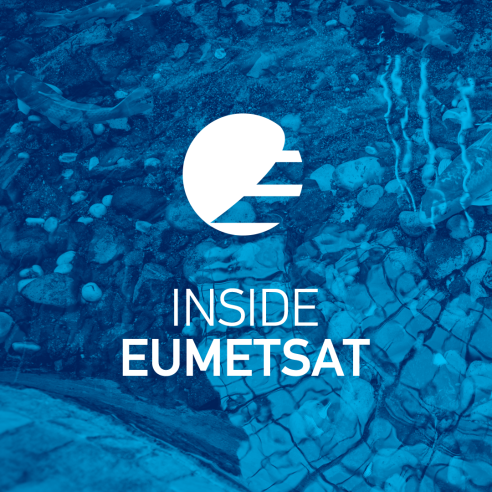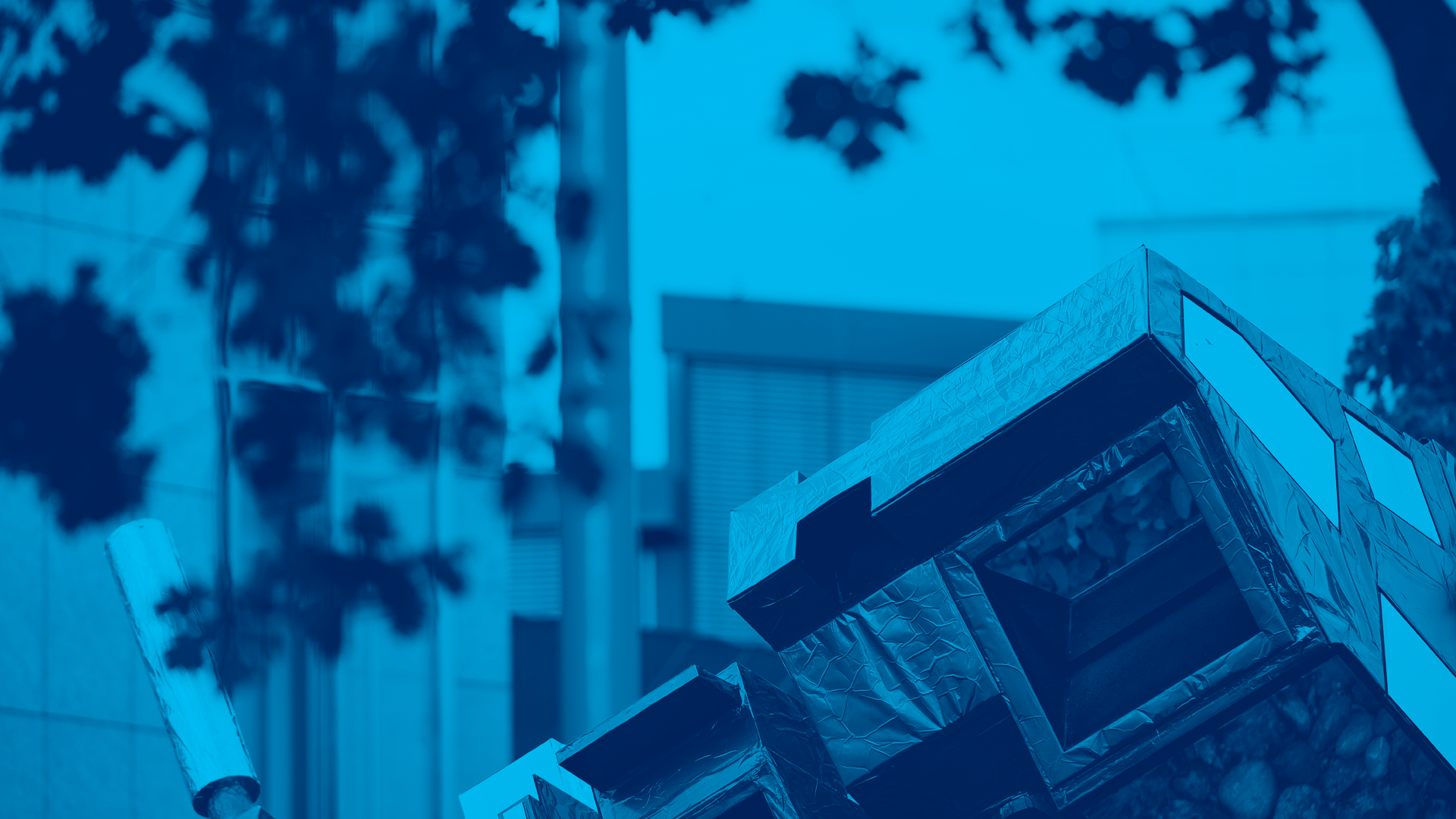
Inside EUMETSAT: meet Niklas and Gesa
Inside EUMETSAT interviews Niklas Sinander and Gesa Büttner

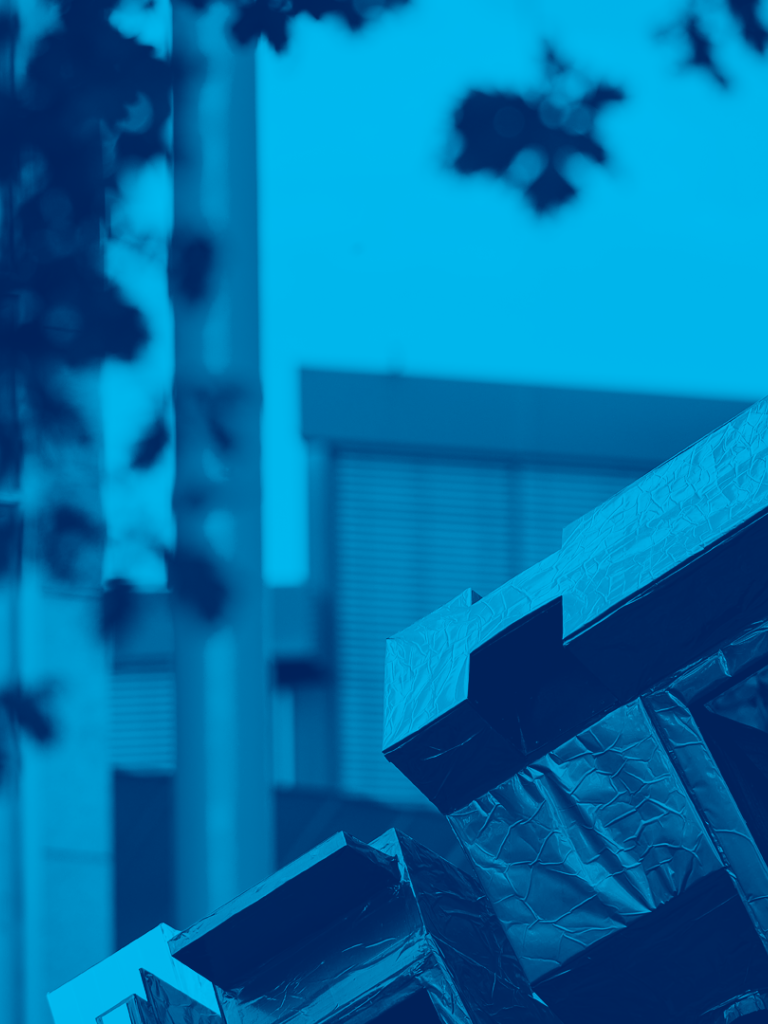
Inside EUMETSAT returns this month with another in-depth interview and a deep dive into the fascinating world of Information Management. Meet our colleagues: Niklas Sinander and Gesa Büttner! Niklas started in March 2000, while Gesa joined EUMETSAT in January 2020.
20 June 2023
09 December 2021
Inside EUMETSAT is a series of articles for the EUMETSAT Science Blog. Each month, we’ll introduce you to two valued members of our team: one newcomer, who joined in the past year, and one senior staff member who has spent years at the organisation.
In a time that’s far from ordinary, we hope to use this opportunity to introduce our readers to some of the diverse and friendly faces they might encounter in the course of a normal day at EUMETSAT. It’s our goal to appreciate and celebrate all the different and talented people who work here. We hope these articles will help you discover—or rediscover—EUMETSAT.
Meet Niklas and Gesa!

Gesa Büttner: Information Management Competence Area Manager.
What is your current role at EUMETSAT? What are your current duties?
Niklas Sinander:
I am responsible for a team that supports information management activities across EUMETSAT by being the interface for the Information and Communication Technology division (ICT). This includes gathering information management (IM) needs and converting them into business requirements for new IM systems and enhancements to existing ones. Inside ICT, my team is interfacing with other internal ICT teams for the implementation of the business requirements. This can be done either by developing software or by procuring new tools.
We also provide second level support and training on these systems.
Gesa Büttner: I am responsible for the Information Management Competence Area in PRS (TSS). The Competence Area supports EUMETSAT with information management expertise and services, and a framework of information management processes and practices. My duties include to a large extent planning and coordination, as well as supporting and enabling the Information Management Team to carry out their work. I am the first CAM for information management. Until quite recently, information management at EUMETSAT focused mainly on documents, and document management was merged with configuration management in one competence area. My role is therefore also to give fresh impetus to the development of information management. The goal is now to address information in a larger sense including its various manifestations and its larger context, to approach it as a vital resource and carrier of knowledge, and to fully exploit the potential of information management by integrating it into business operations. For this purpose, we have developed the Information Management Way Forward initiative, a series of coordinated projects and activities that target the modernisation of information management. Innovation in information management concerns not only the use of state-of-the art technologies. More importantly it refers to the streamlining of information management processes. We also need to support the management of information throughout the whole information life cycle, from the creation of information until its disposition. For example, some information needs to be kept as archives for the memory of the organisation.
Do you normally interact with your interview counterpart and his/her division? Have you personally worked with him/her?
NS:
My team and I work very closely with Gesa and her team. We talk almost daily about information management needs and how to best implement them via new systems or enhancements, and which trainings are needed and how to deliver them.
Currently we are discussing various activities in the Information Management Way Forward initiative and how ICT systems can support them. One example of this is the selection of a new platform for information management that will replace the document management tool (DM Tool) in a couple of years.
GB: Yes, I interact on a regular basis with Niklas, our teams work closely together in a structure which is called Information Management Operational Management (IMOM) to provide an information management framework for EUMETSAT. I learned that Niklas sort of introduced the ideas of information management in EUMETSAT and that is impressive! Having an IM background or an ICT background can sometimes be felt as an insurmountable difference; one can compare the former to marathon runners whereas the latter are sprinters – but we manage to run together!
What has been your biggest challenge during COVID and lockdown? Do you feel supported by EUMETSAT?
NS:
Having worked a long time at EUMETSAT, I already knew most of the people I interact with for my activities, which helped a lot when switching to virtual interactions.
It was more challenging to work with people that I had never met in person. Luckily, I met Gesa some weeks before the lockdown so we could pick it up from there.
However, the biggest challenge was probably the many back-to-back Zoom meetings that tended to be efficient but also tiring.
With the current arrangement I enjoy the flexibility of being in the office for face-to-face interactions, but also at home when needed to work undisturbed on tasks that require more focus and concentration.
GB: Zoom, Skype, Webex can simply not replace the face-to-face communication in person. So many nuances get lost. To feel connected, it is important to speak to people also informally, and meet them on campus outside of meetings. My impression is that with the continuous teleworking, my learning process slowed down. I still have to learn a lot at EUMETSAT. In particular, if one works in a support function like information management, a constant and intense link to the core business activities of EUMETSAT is crucial. The exposure to the raison d’être of the organisation seems to me as newcomer more difficult during the extended remote work.
Where do you usually work from? How do you interact with your colleagues?
NS:
With the easing of restrictions and living close to work, I now tend to work more from the office than from home.
GB: These days I work either from EUMETSAT or from home. I am alternating, as I share an office, and with the current restrictions, only one of us can be in the office at a time. To talk we use Zoom or Skype. During the recent “better” times we managed to organise some meetings, and that is so much better for a good communication!
What has your experience of EUMETSAT been during normal, non-pandemic times? Why do you like working here?
NS:
What I like the most is the international atmosphere. It is very enriching to work together with people from other countries and cultures to achieve common goals. It can be challenging at times, but you always gain new insights on different ways of approaching and solving problems.
What has been your experience of EUMETSAT been since your recruitment? Were you able to come to HQ and meet colleagues face-to-face?
GB: When the first lockdown started in mid-March 2020, fortunately I had already been working for ten weeks in a live environment – which I found pleasant and enjoyable. People here are in general very accessible, also the senior management. That is a new experience!
How did your recruitment take place?
GB: The recruitment was a longer process, which allowed both sides to learn more about each other. There were two interviews, a series of tests, both before and after the main interview. In my case, also the second, i.e. the main, interview took place online due to a problem of dates. At the time, before COVID-19, I was not familiar with Webex. I really appreciate the support I received from EUMETSAT, both from Human Resources and the Service Desk to make this Webex happen!
What book are you currently reading?
NS:
SPQR by Mary Beard. It’s about ancient Rome and it’s very interesting. I’m half way through it, having hit pause currently, but plan to pick it up again with the weather getting wetter and darker.
GB:
Patria from Fernando Aramburu, about ETA terrorism and what it does to victims, perpetrators, and their respective families. It moves me a lot. But I selected this above all to brush up my rusty Spanish and converse with the numerous Spanish speaking colleagues at EUMETSAT.
Which weather phenomenon represents you best?
NS:
An early winter morning sunrise, no wind and frostbite on the chin.
GB:
One of those small white meandering clouds that quickly drift across a sunny sky and cast their moving shadows on the landscape.
If expense were not a concern, what would you like to do in the next 5 years?
NS:
Ski on various mountains in the winter and play at small tennis clubs around the world in the summer.
GB:
Travel around the world and take singing lessons.
According to you, what is the most exciting science/technology innovation in the last century?
NS:
The internet for sure. Not a very exciting answer, but simply the fact!
GB:
The ones linked to information technology: the internet, the World Wide Web, the smart phone, etc.
